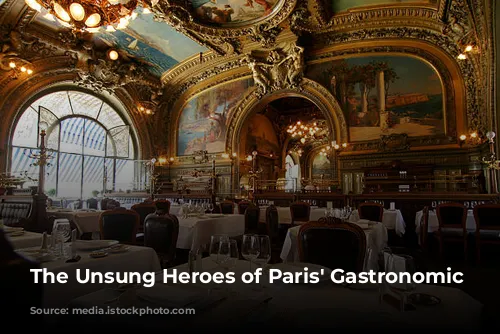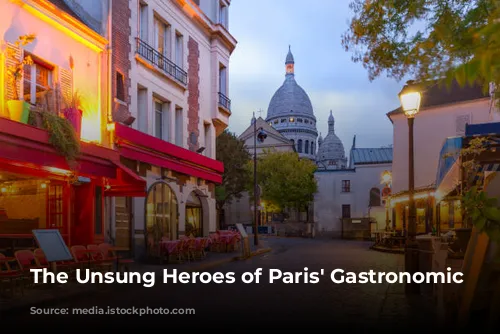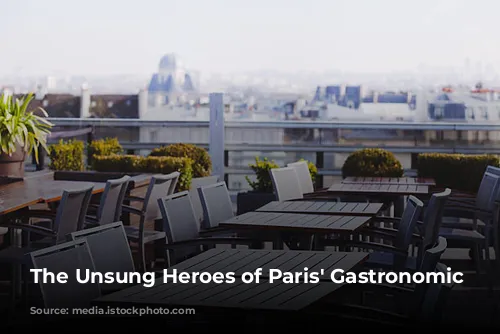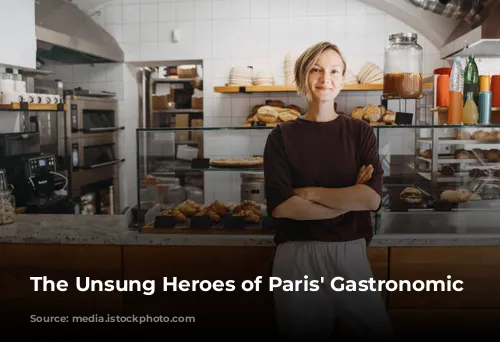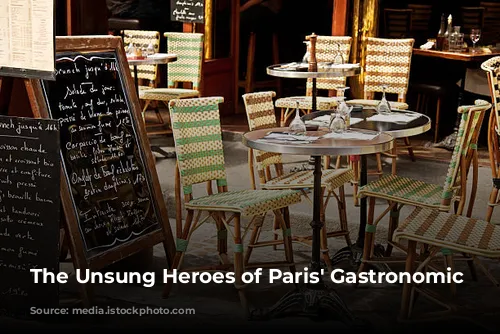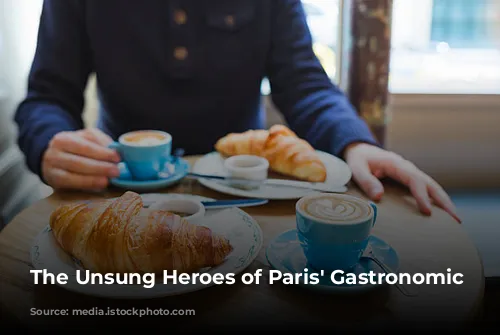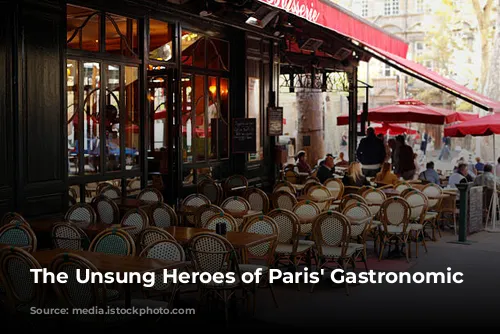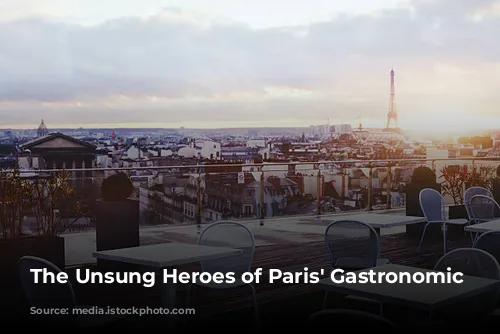Imagine a warm summer evening in Paris. The iconic Rue Bretagne, renowned for its bustling bars, is alive with energy. At Le Pinardier, a popular terrace cafe, patrons savor the quintessential French experience: indulging in local wines, cheeses, and charcuterie. But behind this charming scene lies a hidden reality, one intricately woven with the fabric of France’s immigration debate.
While customers enjoy their meals, just 70 feet away, a young chef named Sazal Saha diligently works his magic in the kitchen. Born in Kuhlna, Bangladesh, Saha has called Le Pinardier his culinary home for the past five years. His journey began with a two-year catering program at the Joliet-Curie School in northern France, culminating in a solo mission in the heart of Paris.
Saha’s day-to-day routine is a whirlwind of activity. From sourcing fresh produce to prepping ingredients, cooking, cleaning dishes, and managing the kitchen, he’s a one-man army. “It’s not easy working alone,” Saha confides, “It’s complicated, but I’m used to it.” His initial lack of familiarity with French cheeses has transformed into an expert understanding, highlighting the dedication he brings to his craft.

The Immigrant Backbone of French Hospitality
Saha’s choice to become a chef in Paris stemmed from recognizing the immense need for skilled workers in the hospitality industry. Across France, particularly in its vibrant capital, restaurants heavily rely on immigrant labor to maintain their operations.
Statistics paint a stark picture: a staggering 25% of French cooks hail from outside the European Union, according to former French Labor Minister Olivier Dussopt. In Paris alone, more than half of the 86,000 chefs are immigrants, playing a crucial role in feeding and delighting tourists from around the world. “Most of the people working in kitchens [in Paris] are either from Bangladesh or Sri Lanka,” says Florian Mousson, the owner of Le Pinardier.
A Culinary Crossroads: Immigration and the Future of French Cuisine
Mousson, a descendant of generations of restaurateurs in Marseille, knows firsthand the irreplaceable value of immigrant workers. His business, like countless others, would struggle to survive without them. Yet, the current political climate in France is fueled by anti-immigration sentiment, with the far-right Rassemblement National (National Rally) gaining traction in the recent parliamentary elections.
From Paris to Marseille, kitchens across France rely on a diverse workforce. In Paris, South Asian immigrants are a common sight, while the south sees a significant presence of Comorian workers, hailing from a former French colony in the Indian Ocean. This diverse culinary tapestry is facing a challenging future, as the rising tide of anti-immigration sentiment threatens to reshape the landscape.
Mousson acknowledges the demanding nature of kitchen work, emphasizing the long hours, strenuous physical labor, and intense heat. He notes the shrinking pool of French workers willing to undertake such a demanding role. In 2019, Mousson found Saha through Leboncoin, the French equivalent of Craigslist. He praises Saha’s cooking skills, work ethic, and collaborative spirit.
A Culinary Perspective: The Power of Dedication
While some might argue that restaurant owners favor immigrants due to lower wages, Mousson refutes this notion. “I don’t care if my cook is French or a foreigner,” he asserts. However, he acknowledges that the sheer number of foreign applications outweighs the French ones, making it statistically more likely to hire an immigrant chef.
Saha’s dedication translates into a good salary, despite the long hours. Mousson emphasizes that the deciding factor for kitchen work is not salary but the ability to endure the challenges. He contrasts Saha’s dedication with his first French chef, who resigned after just three days, seeking a role solely focused on cooking, not the ancillary responsibilities.

A Divided Future: Hope and Uncertainty
Saha’s five years in Paris have been fruitful. He’s found a home, built a life, and even bought an apartment in a suburb. However, the recent rise of the far-right and their restrictive immigration policies cast a shadow of uncertainty over his future.
The National Rally’s victory in the first round of the French parliamentary elections with a record 33.15% of the vote raises concerns about the potential for stricter immigration controls. Their “France first” agenda promotes preferential treatment for French citizens in the social welfare system, potentially jeopardizing the lives of immigrants like Saha.
Despite the anxieties, Saha remains steadfast in his commitment to France. He expresses his pride in working in a French restaurant and emphasizes his contributions as a tax-paying member of society. “We are here, we are not doing bad things, we are working here, we are paying taxes, we are paying everything like all French people,” he asserts. His unwavering dedication to his craft and his adopted home shines through, even in the face of uncertainty.
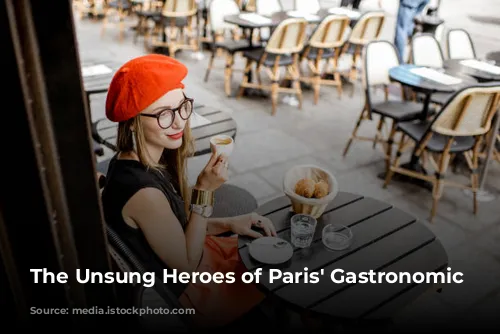
A Culinary Tapestry: Bridging Cultures through Gastronomy
Sazal Saha’s story is a powerful reminder of the vital role immigrants play in shaping the culinary landscape of France. While anti-immigration sentiment casts a long shadow, the dedication and resilience of individuals like Saha offer a beacon of hope, demonstrating the power of hard work and cultural exchange in building a vibrant and inclusive society.

